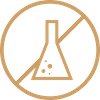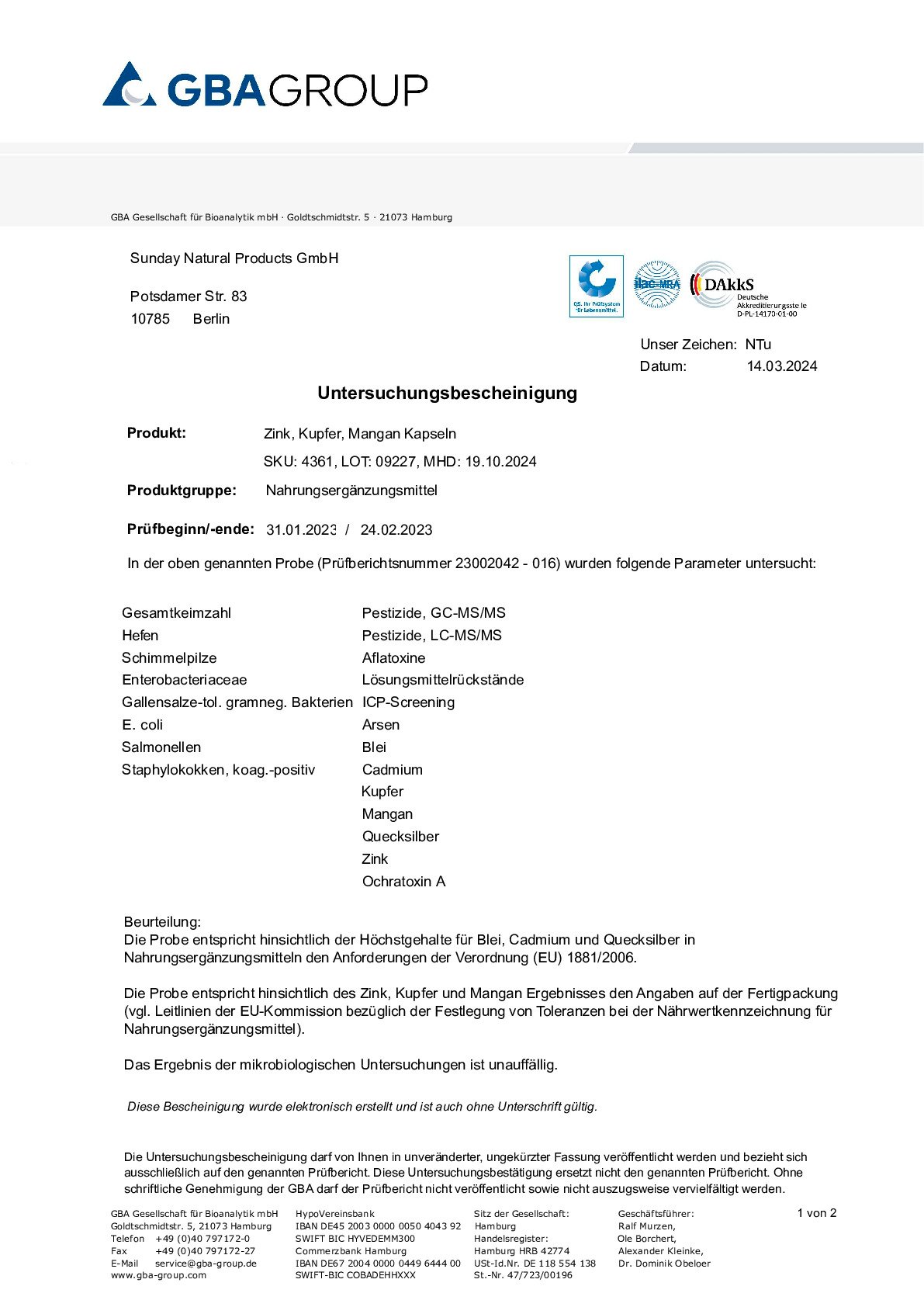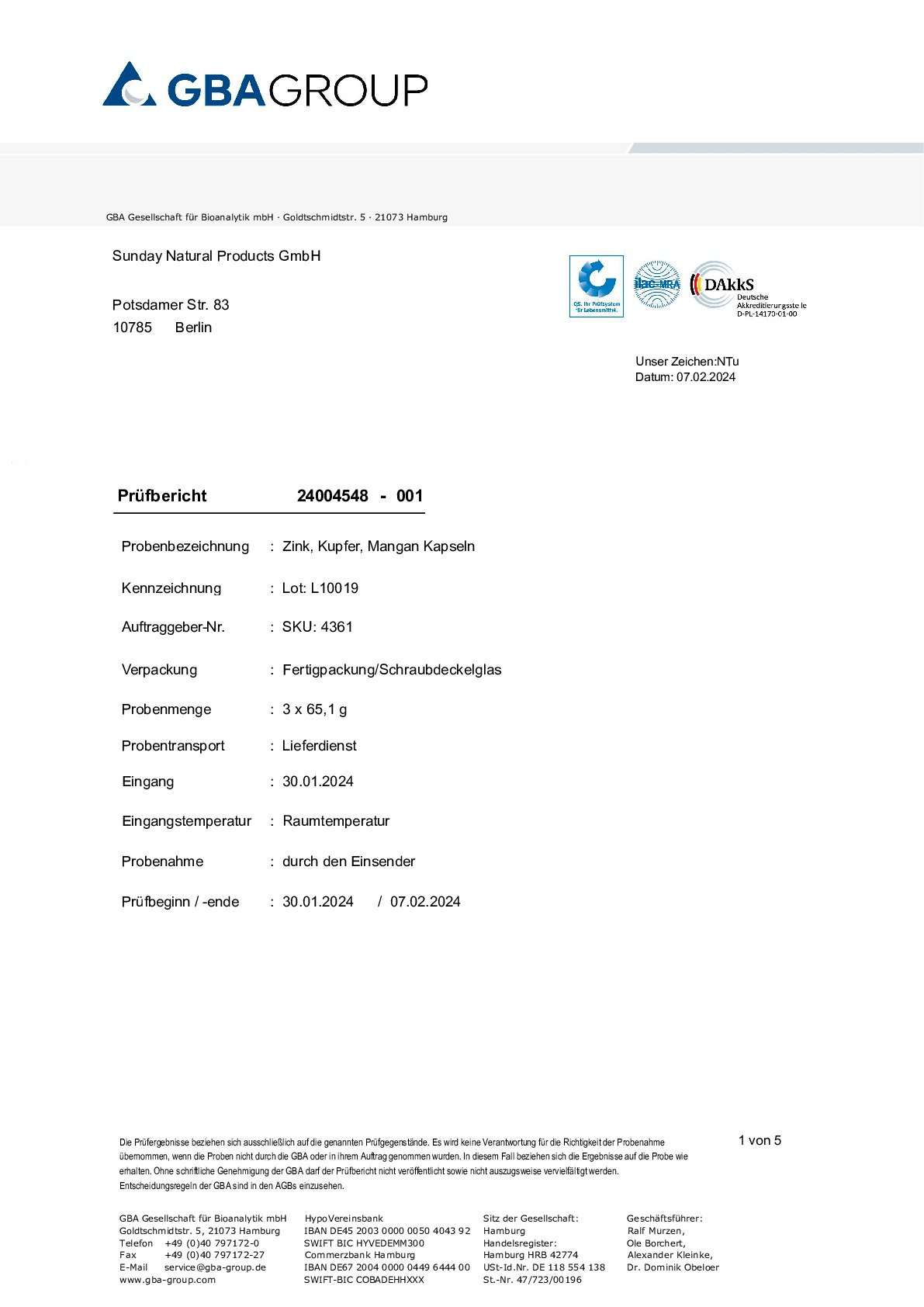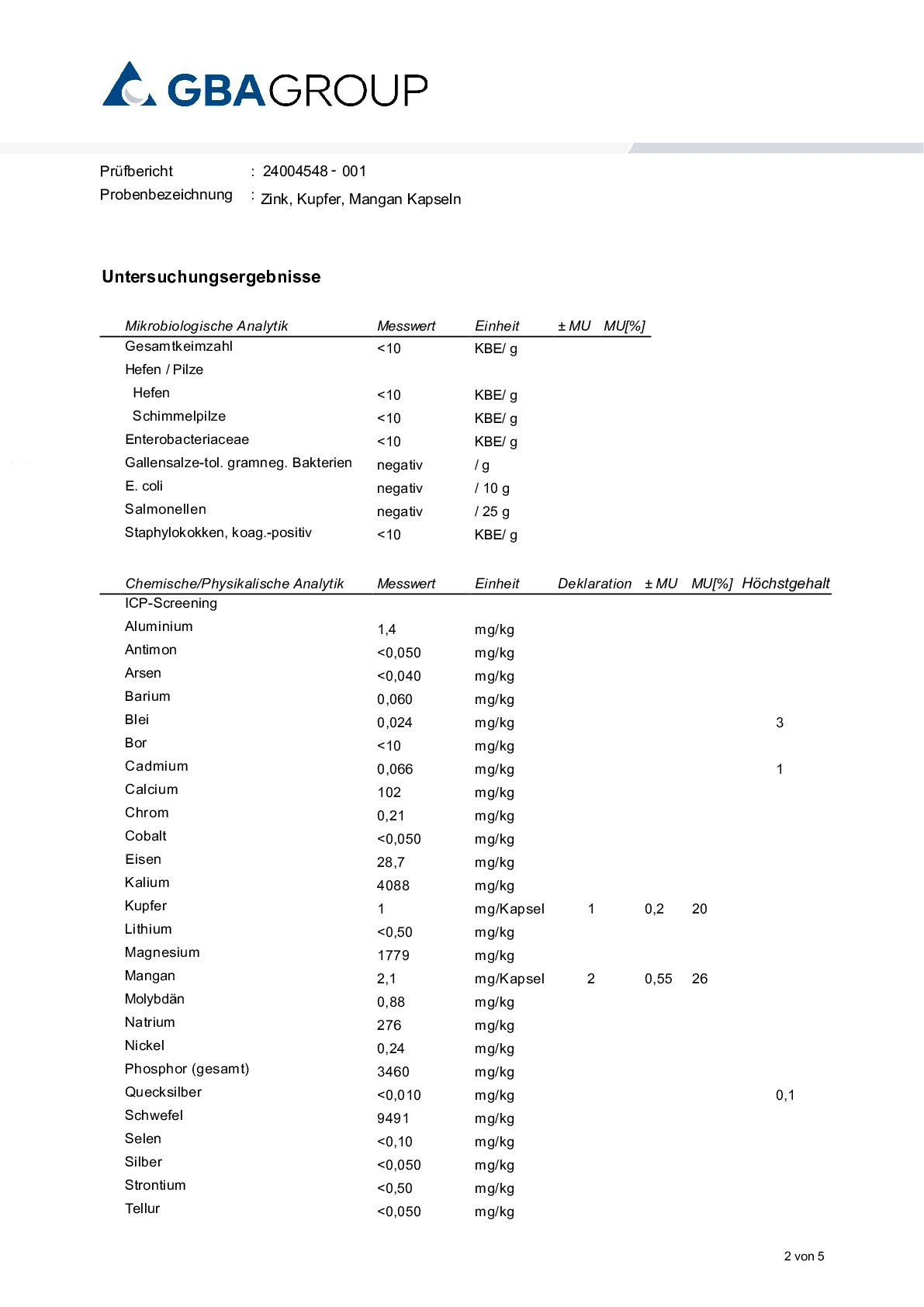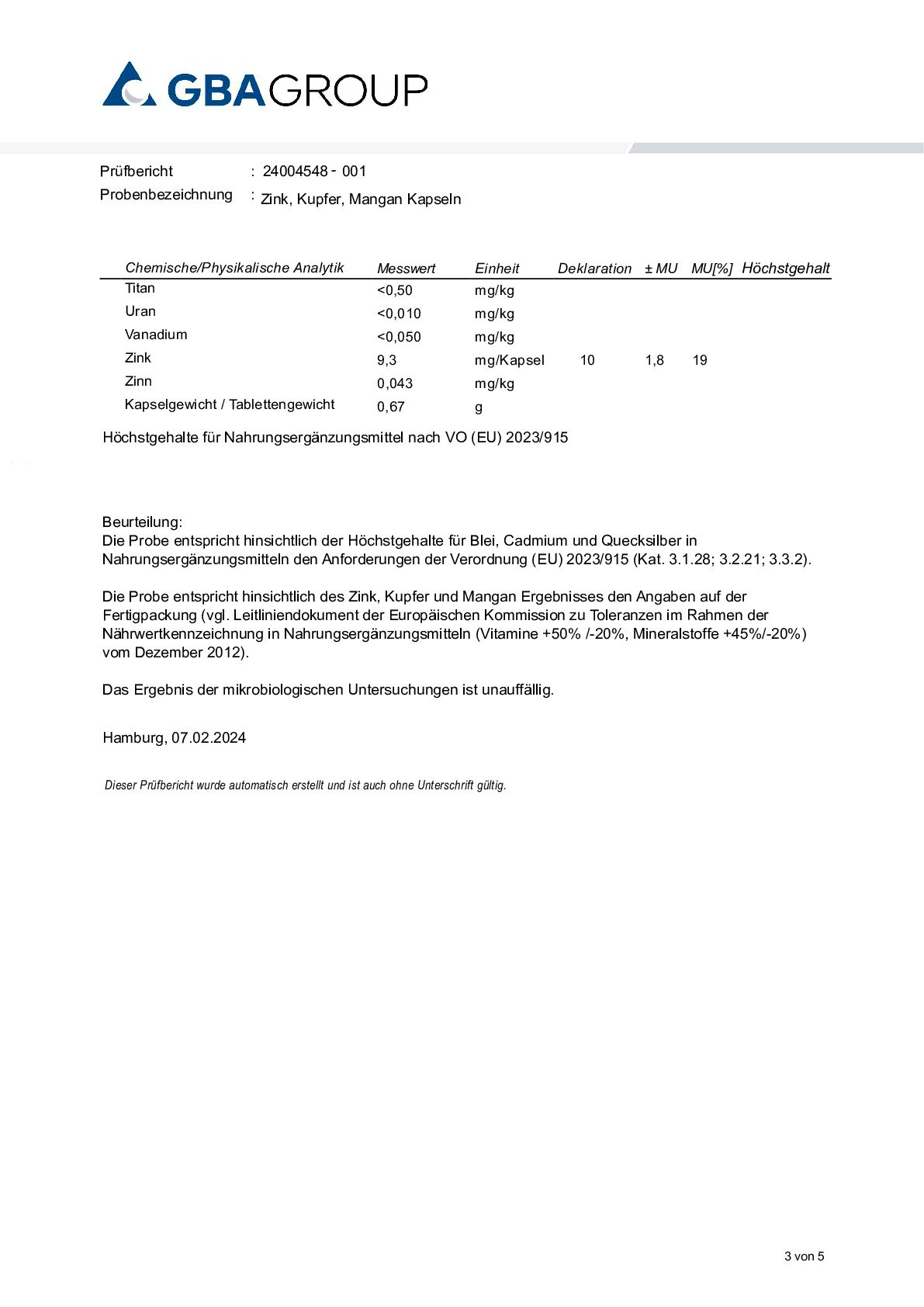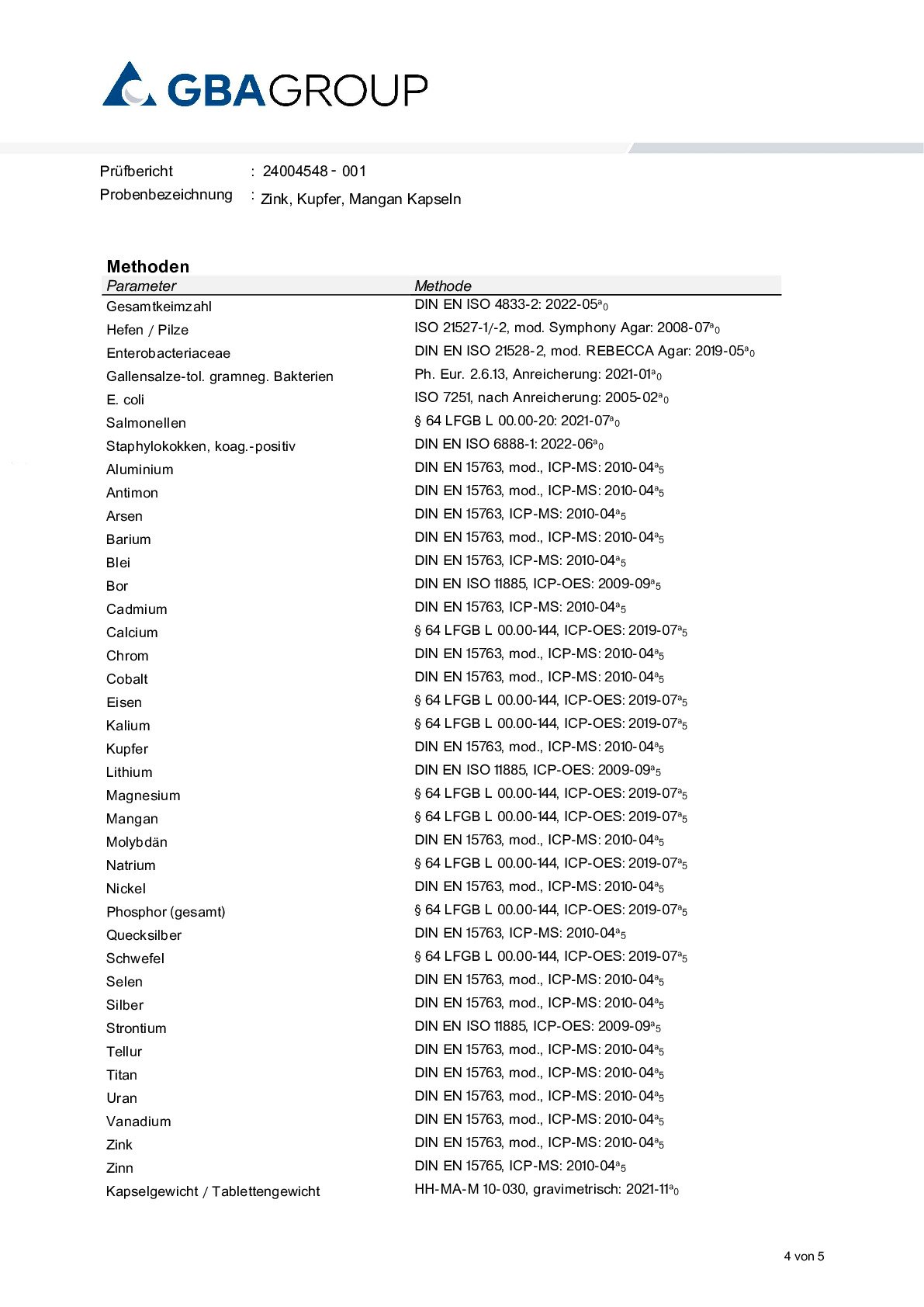Zinc, Copper & Manganese
Zinc, copper and manganese are essential trace elements that play a role in various enzymatic and antioxidative repair processes in the body.
Zinc is not only important for the immune system, but also serves to maintain healthy skin, hair, nails and bones, as well as testosterone levels and vision. Zinc is also important for the synthesis and breakdown of carbohydrates, lipids and proteins.
Copper plays an important role in the maintenance of connective tissue as well as in the production of pigmentation for skin, hair and red blood cells. Copper is crucial for iron intake as well as the formation of various tissues, including nerve fibres. Copper promotes wound healing and contributes to healthy immune defence.
Manganese is a component of many enzymes, protects DNA, proteins and lipids against oxidative stress and contributes to the maintenance of bones and energy metabolism.
General Zinc Requirements
Zinc, an essential trace element, is a component of over 300 enzymes and influences more than 3000 endogenous proteins. As a result, zinc contributes to numerous important body functions. This mineral is essential for the maintenance of the immune system, metabolism and fertility, in cell division and DNA synthesis, as well as supporting healthy eyes, hair and nails.
According to the European Food Safety Authority (EFSA):
Zinc contributes to:
- Protecting cells from oxidative stress
- Normal cognitive function
- Normal immune system function
- Normal acid-base metabolism
- Normal carbohydrate metabolism
- Normal lipid metabolism
- Normal DNA synthesis
- Normal fertility and reproduction
- Normal metabolism of macronutrients
- Normal vitamin A metabolism
- Normal protein synthesis
- Maintenance of bones, nails, skin and hair
- Maintenance of normal vision
- Maintenance of normal blood testosterone levels
- Cell division
General Copper Requirements
Copper is a component of numerous enzymes and is involved in many redox reactions. This trace element plays an important role in haematopoiesis, energy metabolism and antioxidant defence.
According to the European Food Safety Authority (EFSA)
Copper contributes to:
- the protection of cells from oxidative damage
- normal function of the immune system
- normal connective tissue
- normal energy metabolis
- to the normal function of the nervous system
- to the maintenance of normal skin and hair pigmentation
- normal iron transport
General Manganese Requirements
The trace element manganese contributes to a variety of metabolic processes within the body. It is a component of a number of enzymes that are required for the detoxification of metabolic waste products and for a functioning energy metabolism. As a component of the enzyme superoxide dismutase (SOD), manganese plays an important role in cell protection; proteins, lipids and DNA are thus protected from oxidative damage. Manganese contributes to healthy bone structure and the formation of normal connective tissue.
Manganese gluconate is an organic form of manganese and has particularly good bioavailability. Alongside zinc, iron and copper, manganese is an essential trace element that must be supplied daily in sufficient quantities and is a component of vital enzymes.
According to the European Food Safety Authority (EFSA):
Manganese contributes to:
- the protection of DNA, proteins and lipids from oxidative damage
- the maintenance of normal bones
- normal energy metabolism



















